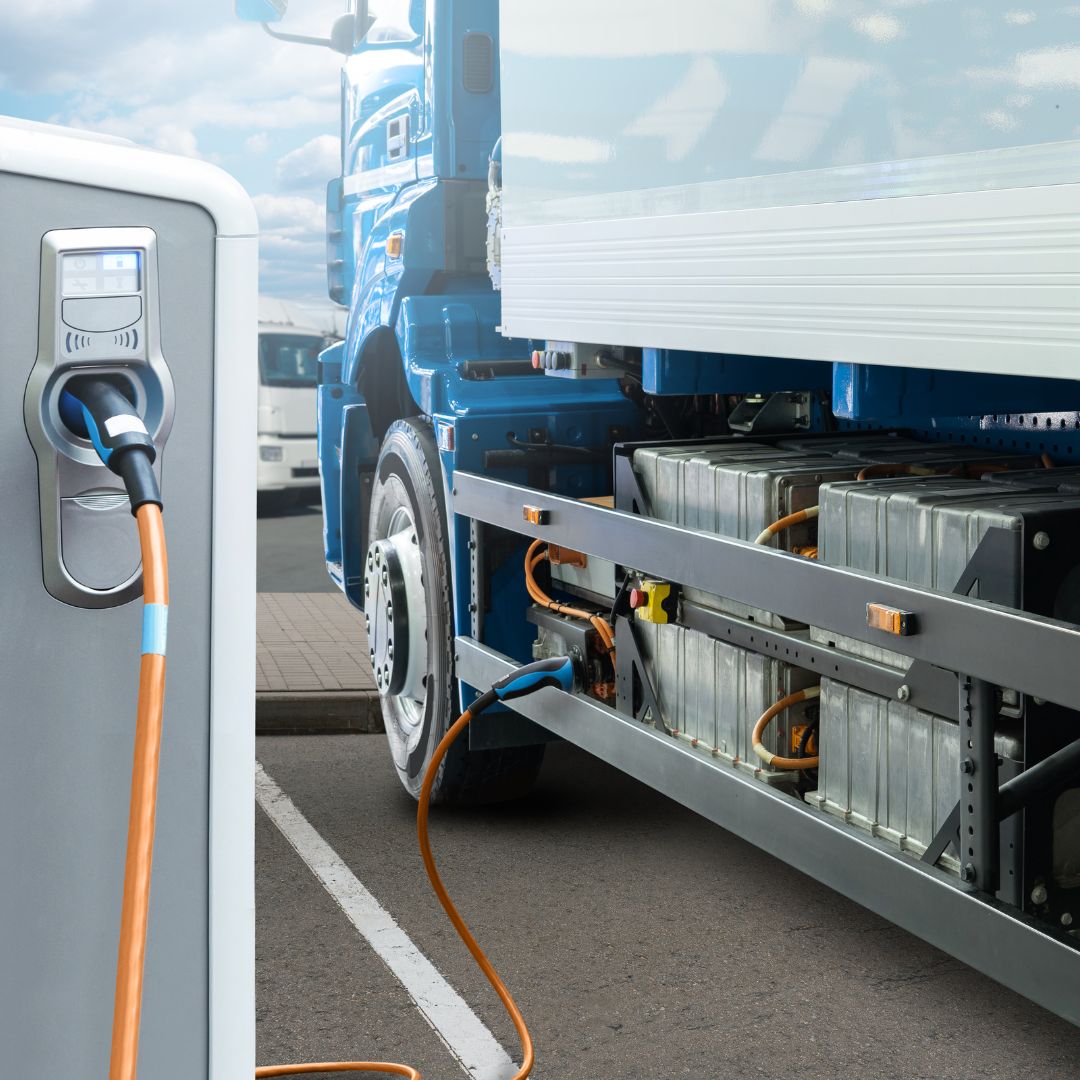As the demand for sustainable transportation continues to rise, many businesses are turning to electric vehicles (EVs) for their fleet operations. Electric vehicle fleet management presents unique challenges and opportunities compared to traditional fuel-based fleets. To ensure a successful transition and maximize the benefits of EVs, businesses need to implement effective management strategies.
In this article, we will explore key considerations and provide practical insights on how to succeed at electric vehicle fleet management.
Understand the Unique Characteristics of Electric Vehicles
Before diving into electric vehicle fleet management, it is crucial to understand the unique characteristics of EVs. Consider the following factors:
Range and Charging Infrastructure
Electric vehicles have a limited range and require access to charging infrastructure. Assess the range capabilities of different EV models and evaluate the availability and accessibility of charging stations in the areas where your fleet operates.
Charging Time
Electric vehicles take longer to charge compared to refueling traditional vehicles. Plan your routes and schedules to accommodate charging requirements and optimize vehicle availability.
Battery Degradation
Over time, EV batteries experience degradation, resulting in reduced range. Monitor battery health, consider battery warranties, and factor in potential battery replacements in your long-term fleet management plan.
Develop an Infrastructure and Charging Strategy
A well-planned infrastructure and charging strategy are vital for successful electric vehicle fleet management. Consider the following steps:
Assess Charging Needs
“Evaluate the charging requirements of your fleet by considering factors such as vehicle usage patterns, daily mileage, and charging infrastructure availability. Determine whether on-site charging stations, public charging networks, or a combination of both will best meet your fleet’s needs.”

Invest in Charging Infrastructure
If feasible, establish on-site charging infrastructure tailored to your fleet requirements. This allows for convenient and controlled charging, reduces reliance on public infrastructure, and can help optimize charging costs.
Explore Public Charging Options
Identify public charging stations along your fleet’s routes and establish partnerships with charging network providers. Access to a wide network of charging stations ensures flexibility and reduces range anxiety for drivers.
Consider Smart Charging Solutions
Implement smart charging solutions that enable load management and optimization. These systems can help distribute charging load efficiently, reduce peak demand charges, and maximize the use of renewable energy sources.
Optimise Fleet Operations and Routes
Efficient fleet operations are essential for maximizing the benefits of electric vehicle management. Consider the following strategies:
Route Planning
Utilise route planning software to optimize efficiency and reduce energy consumption. Incorporate charging stations into route planning to ensure drivers have access to necessary charging infrastructure.
Telematics and Data Analysis
Utilise telematics systems to gather data on vehicle performance, energy consumption, and driver behaviour. Analyze this data to identify areas for improvement, such as reducing energy waste, optimizing driving patterns, and implementing driver training programs.
Driver Training and Engagement
Provide comprehensive training to drivers on EV-specific features, range management techniques, and energy-efficient driving practices. Engage drivers in the transition to EVs, addressing any concerns and encouraging their active participation in achieving efficiency goals.
Monitoring and Reporting
Regularly monitor vehicle performance, charging patterns, and energy consumption. Implement reporting mechanisms to track progress, identify outliers, and address any issues that arise promptly.
Implement Effective Maintenance Practices
Maintaining the health and performance of electric vehicles is crucial for successful fleet management. Consider the following maintenance practices:
Battery Management
Develop a battery maintenance strategy to ensure optimal performance and longevity. Monitor battery health, schedule regular inspections, and implement proper storage and charging practices to minimize battery degradation.
Software Updates
Stay up to date with EV manufacturer software updates, as they often include performance enhancements and bug fixes. Regularly update the software of your electric vehicles to ensure they operate at their best and benefit from the latest advancements.
Scheduled Maintenance
Follow the manufacturer’s recommended maintenance schedule for EVs, including tire rotations, brake inspections, and coolant checks. Adhering to these guidelines helps prevent potential issues and ensures the longevity of your vehicles.
Specialized Training
Ensure your maintenance staff receives specialized training on EV maintenance and repairs. Electric vehicles have unique components and systems that require specific knowledge and skills. Proper training ensures that maintenance tasks are performed correctly and efficiently.
Partnerships with Service Providers
Establish partnerships with service providers specializing in electric vehicle maintenance and repairs. Collaborating with experts in the field ensures access to the necessary expertise, genuine parts, and efficient service, minimizing downtime and maximizing vehicle performance.
Financial Considerations and Incentives
Managing the financial aspects of an electric vehicle fleet requires careful consideration. Explore the following financial considerations and incentives:
Total Cost of Ownership
Evaluate the total cost of ownership (TCO) for electric vehicles compared to traditional fuel-based vehicles. Consider factors such as purchase price, fuel/charging costs, maintenance expenses, tax incentives, and potential savings on operational costs.
Government Incentives
Research available government incentives and subsidies for electric vehicles. These incentives can significantly offset upfront costs and ongoing operational expenses, making the transition to electric vehicles more financially viable.
Energy Management and Tariffs
Investigate time-of-use electricity tariffs and energy management strategies. By charging your vehicles during off-peak hours, you can take advantage of lower electricity rates, reducing operational costs.
Consult with Financial Experts
Seek guidance from financial experts or consultants specializing in electric vehicle fleet management. They can provide insights on cost analysis, tax benefits, and financial planning specific to your business and industry.
Stay Updated on EV Technology and Industry Trends
The electric vehicle industry is rapidly evolving, with new technologies and industry trends emerging regularly. Stay updated on the latest advancements to ensure your fleet management strategies remain effective:
Industry Research and Conferences
Attend industry conferences, seminars, and workshops to stay informed about the latest EV technologies, charging infrastructure developments, and best practices in fleet management. Engage with experts, network with peers, and gain insights to enhance your fleet operations.
Collaboration and Partnerships
Foster collaboration and partnerships with EV manufacturers, charging infrastructure providers, and other industry stakeholders. These relationships can provide access to valuable information, resources, and support in navigating the evolving landscape of electric vehicle fleet management.
Industry Publications and News
Subscribe to industry publications and news sources that cover electric vehicle technology, fleet management, and sustainable transportation. Regularly read articles and reports to stay informed about the latest trends, innovations, and case studies relevant to your fleet.
Continuous Learning and Training
Encourage ongoing learning and professional development for your fleet management team. Provide opportunities for training, certifications, and knowledge sharing to ensure they have the necessary expertise to adapt to new technologies and industry trends.
Conclusion
Succeeding at electric vehicle fleet management requires careful planning, infrastructure development, optimized operations, effective maintenance practices, financial considerations, and staying updated on EV technology and industry trends. By understanding the unique characteristics of electric vehicles, implementing a charging infrastructure strategy, optimizing fleet operations and routes, maintaining vehicles effectively, considering financial aspects and incentives, and staying informed about industry advancements, businesses can successfully transition to electric vehicle fleets. Embracing sustainable transportation not only contributes to environmental conservation but also offers long-term operational benefits, cost savings, and a positive brand image in an increasingly eco-conscious world.





